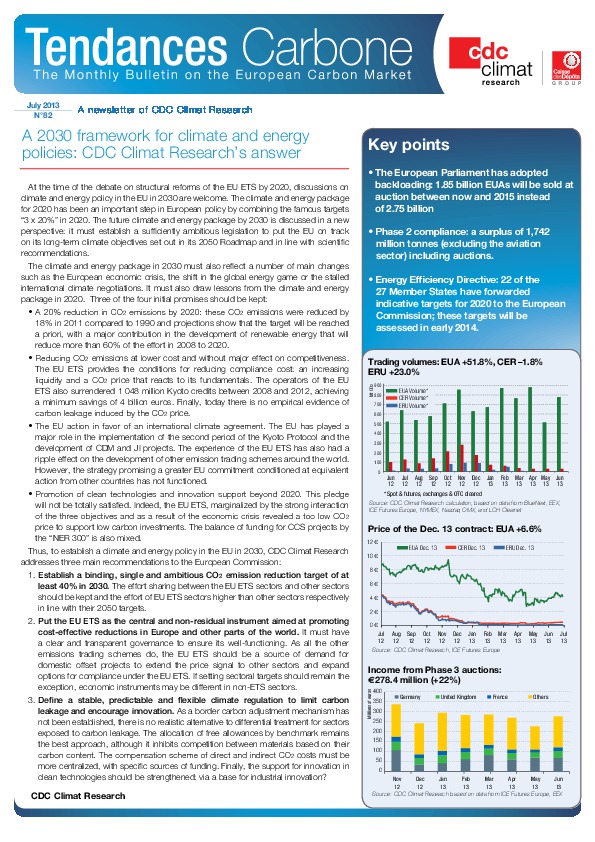A 2030 framework for climate and energy policies: I4CE’s answer
To establish a climate and energy policy in the EU in 2030, I4CE addresses three main recommendations to the European Commission: (1) Establish a binding, single and ambitious CO2 emission reduction target of at least 40% in 2030. (2) Put the EU ETS as the central and non-residual instrument aimed at promoting cost-effective reductions in Europe and other parts of the world. (3) Define a stable, predictable and flexible climate regulation to limit carbon leakage and encourage innovation.
Key drivers of the European carbon price this month:
-The European Parliament has adopted backloading: 1.85 billion EUAs will be sold at auction between now and 2015 instead of 2.75 billion
-Phase 2 compliance: a surplus of 1,742 million tonnes (excluding the aviation sector) including auctions.
-Energy Efficiency Directive: 22 of the 27 Member States have forwarded indicative targets for 2020 to the European Commission; these targets will be assessed in early 2014.
